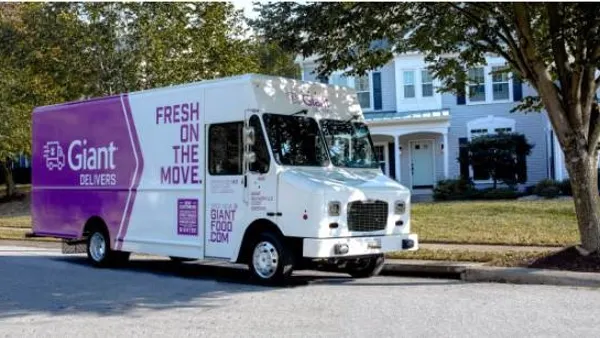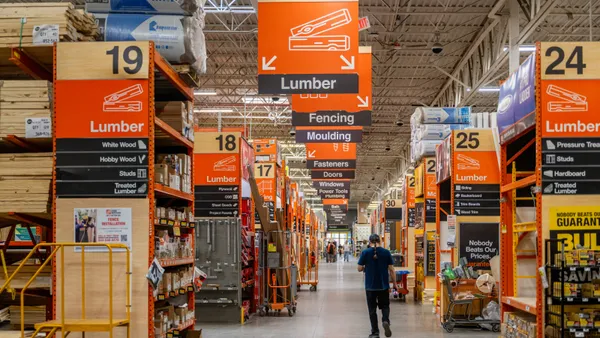Dive Brief:
- Facing the threat of more tariffs, companies will begin to create supply chains just to export to America, Mary Lovely, an Anthony M. Solomon senior fellow at the Peterson Institute for International Economics, said during a Wednesday press briefing with the Port of Los Angeles.
- Creating a separate supply chain for the U.S. market would mean eliminating components from China for products bound for the country, Lovely told Supply Chain Dive in an email.
- “If the U.S. says, ‘no Chinese content, no matter what the good, what the product, whether there's a national security implication or not,’ you're going to see that supply chains will be created at higher expense just to serve the United States,” Lovely said during the press conference.
Dive Insight:
With President-elect Donald Trump’s plans to impose tariffs during his administration, shippers and supply chain managers are revising their trade strategies — which could come at a higher cost.
“We’re looking ahead to a period that we think will be very active for trade policy. That’s going to cause a lot of headaches, I think, and rearrangements for shippers as well as the managers of global supply chains,” Lovely said in the press briefing.
Supply chain rearrangements are already happening with companies like Steve Madden, Yeti and Traeger reducing their share of sourcing from China ahead of potential tariffs. Lovely said doing so results in higher-cost supply chains.
“Not only is there the fixed cost of finding new suppliers and establishing new factories or partners, these companies now are almost surely paying more for the goods they used to source from China,” Lovely told Supply Chain Dive.
The Trump administration is focused on increasing reshoring to the U.S., Lovely said, meaning a decrease in the flow of goods in and out of the United States.
To mitigate challenges from potential tariffs, some companies will move production back to the U.S., which can likely be done with a high degree of automation, Lovely said. “Other companies may simply stop selling certain product lines in the USA,” she added.
However, some companies like Stanley Black & Decker don’t see the U.S. as a viable option. The company’s plans include moving production and other aspects of its supply chain from China to other countries in Asia or possibly Mexico.
President and CEO Donald Allan said during an Oct. 29 earnings call that it’s “unlikely that we’re moving a lot back to the U.S. because it’s just not cost effective to do. And there’s questions about whether we even have the labor to actually do that in this country.”















